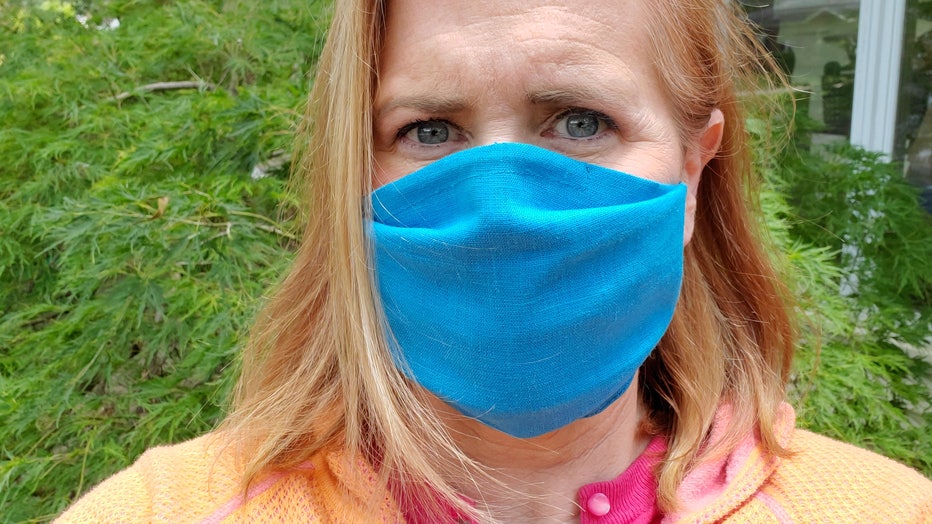How to ease mask-related skin problems

Tips for mask wearers
Masks can be itchy and uncomfortable, so the FOX Medical Team has some advice for mask wearers.
ATLANTA - Wearing a mask is a must for many Americans, but covering your face in the summer heat can wreak havoc on your skin.
At Dermatology Affiliates in Atlanta, Dr. Rutledge Forney is seeing a steady stream of patients coming in with irritated, angry skin.
"We are already seeing a lot of rashes from masks, to be honest with you," Dr. Forney says. "People that have rosacea are finding that their faces are much more flared up."
She recommends following the CDC guidelines and wearing a cotton mask in public settings in which it is difficult to stay six feet away from others.
When you can, Forney says, take a break and take your mask off to allow your skin to breathe.
"For instance, in the car; when you're in the car by yourself, it's okay to have the mask off," Forney explains. "As soon as you get out, you want to put the mask back on."
Start off the day with a clean face and a clean mask.
Throw out disposable masks after each use, and washcloth masks after each wear.
A dirty mask can cause a buildup of dirt and debris on your skin that can trigger breakouts.
If you find yourself getting overheated, try applying a cool washcloth to your skin.
"There are (also) these cooling towels you can actually soak in water and they will maintain a cold temperature of a while," she says.

Use gentle, calming products on your skin.
If your mask is irritating your skin, apply a moisturizer or ointment to your face that will act as a barrier between your skin and the cloth.
"I had a woman this morning, and she was getting an irritation on her chin from her mask," Forney says. "We recommend she use something like Aquafor, which is a healing ointment, that she could put on her chin before she put her mask on."
Wearing makeup with a mask can be messy and can contaminate the mask.
Forney recommends skipping makeup on the lower half of your face, which will be covered by the mask.
If you find your skin is getting scratched, she says, you may want to rethink what type of mask you're wearing.
"Paper can actually be more irritating than fabric," Forney says. "So, the cotton fabric ones are probably the most comfortable ones."
Ultimately, the best mask for you, Forney says is one that you feel comfortable wearing.
"It's a trying time these days, but we're all trying to make it work," Dr. Forney says. "Those masks are vital. Wear your mask."

